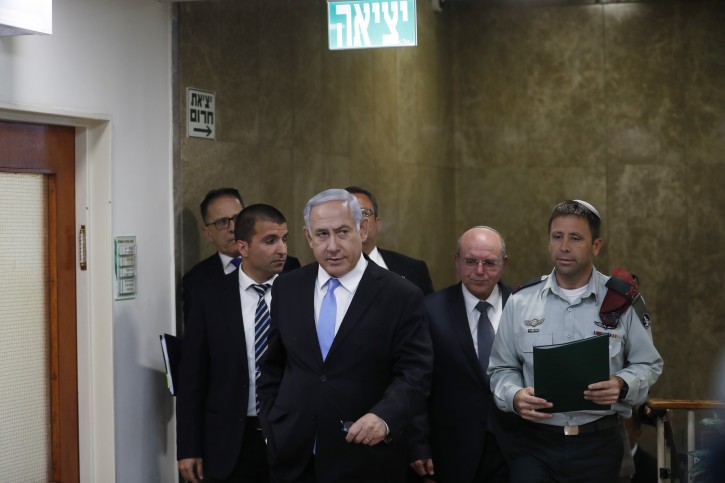
Jerusalem – Israeli Prime Minister Benjamin Netanyahu said Sunni Arab states are moving faster than the Palestinians toward recognition of Israel, another sign that the Trump administration’s yet to be released peace plan may be stillborn.
“They don’t see Israel any longer as their enemy, but as their indispensable ally in standing up to Iranian aggression and even, I would say, beyond that, to joining to achieve technological progress in their respective countries,” Netanyahu said referring in a chat with American Jewish Committee CEO David Harris.
“In many ways, the Arab countries have moved faster than the Palestinians,” he said in the May 13 interview, referring to Sunni Arab states, released for the first time Monday at the AJC’s Global Forum in Washington DC. “The Palestinians try to prevent this normalization process that can ultimately lead to a formal peace.”
Netanyahu reversed what for decades has been the traditional expectation of the sequencing of peace, saying that it was likelier that the Sunni Arab states would lead the Palestinians to peace with Israel, and not the other way around.
“It won’t happen right away, but it’s step by step leading to a peaceful normalization, which I think could help, in fact, achieve peace between Israel and the Arabs and the Palestinian Arabs,” he said.
Netanyahu’s low expectations of Israeli-Palestinian peace was the latest signal that the parties to the proposed Trump administration Israeli-Palestinian peace plan are less than hopeful it will pan out. There is still no scheduled date for the release of the full plan.
President Donald Trump’s son-in-law, Jared Kushner, is set later this month to launch the first, economic, phase of the plan. A number of Sunni Arab states have said they will attend the rollout, as will Israel, but Palestinians have declined to attend, citing what they say is the Trump administration’s bias.
Netanyahu, in the midst of post-election turmoil, does not appear eager to embrace the plane. He reiterated to Harris his condition that Israel must be in charge of security in the West Bank, a non-starter for Palestinians.
Trump administration officials have in recent weeks dampened expectations about the peace rollout. Kushner in an interview broadcast Sunday expressed doubts about the Palestinians ability to govern themselves, and Mike Pompeo, the secretary of state, last week told Jewish leaders that the plan might not “gain traction.”
